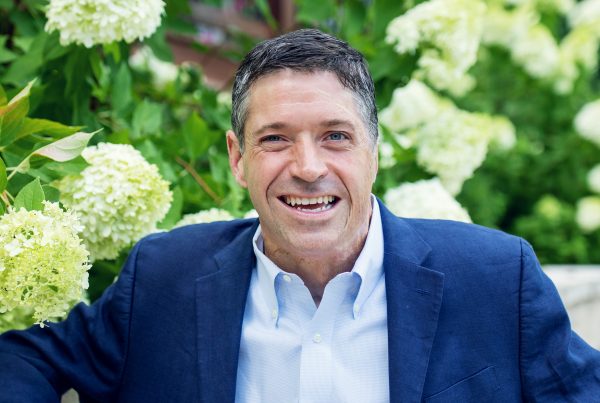Theater drama
Delray Beach may not do everything right, but Delray Beach does do drama.
Tuesday night’s final city commission vote on the iPic project could have been straightforward, if passionate. Instead, things went off-script from the start.
Attorney Bonnie Miskel, who represents iPic, began by asking that the commission delay a vote on three waivers for the site plan and approval of the plat for the theater-office-retail project just south of Atlantic Avenue. Miskel said iPic CEO Hamid Hashemi couldn’t attend.
Miskel also noted the absence of Commissioner Al Jacquet. He voted for the project last August and loomed as the potential swing vote Tuesday if Mitch Katz and Shelly Petrolia voted no. A 2-2 tie would mean that the waivers would fail. In late January, iPic donated $1,000 to Jacquet’s campaign for Florida House District 88.
City Attorney Noel Pfeffer advised the commission that applicants often request postponements. As it became clear that Katz and Petrolia didn’t want to grant Miskel’s request, Pfeffer essentially warned them that they could invite a due process lawsuit by treating iPic differently than another developer. Katz wanted a six-month delay. He and Petrolia ignored Pfeffer’s warning and voted to deny the request. Mayor Cary Glickstein and Commissioner Jordana Jarjura, who are lawyers, voted yes. Miskel lost, 2-2.
Nearly two hours into the meeting, however, Jacquet arrived. Jacquet missing the meeting wouldn’t have been news. He wasn’t on the dais when the commission chose Don Cooper to be manager and when the commission decided on the trash-hauling contract. Jacquet is term-limited in a year, and he’s unopposed at the moment for District 88. Having come late, Jacquet left early. His attendance record makes him the Marco Rubio of the Delray commission.
As for Hashemi, he also showed up. How awkward it would have been for Miskel if Hashemi had arrived to hear that the commission had delayed the vote.
Ultimately, the commission approved the waivers— with Jacquet joining Glickstein and Jarjura in support. Had Jacquet not shown, Glickstein or Jarjura could have voted down the project, and then, having been in the majority, asked to bring back the item when Jacquet was there and been part of a different majority.
The commission asked Pfeffer to attach about half a dozen conditions to the development agreement. Example: the city will get back the alley it abandoned if construction never begins. Example: the city wants iPic to guarantee that the company’s headquarters will be part of the project for at least five years and cover at least 20,000 square feet.
Yet before the final vote, Glickstein griped—with some justification—about how events have bumped along since the Community Redevelopment Agency first sought to place a project where the library and chamber of commerce once stood.
Glickstein criticized the lack of communication between the CRA and the commission on the CRA’s wishes for the site. The CRA board chose iPic more than two years ago with great fanfare. The public, however, remains split on the project. The agency’s process, Glickstein said, “created a lot of the problems.”
The mayor also criticized iPic for “amateur moves” as the company sought approval that “made this worse than it needed to be.” One of those moves was the request Tuesday night for delay. Less use of PR firms and more direct communications, Glickstein said, would have served iPic better. He warned iPic to be vigilant about keeping public parking available during construction and overseeing traffic control on Southeast Fourth and Fifth avenues.
That said, Glickstein is correct that the project holds great potential for downtown. Though some find the design “a little jarring,” the building could become “an iconic structure.” Ipic now moves on to obtaining permits. More drama surely awaits.
Jacquet donors
In addition to that $1,000 contribution from iPic, Jacquet has received serious money from someone else who has business before the Delray commission.
That would be Steve Michael, president of Hudson Holdings. Michael wants to redevelop the former Worrell properties—including the Sundy House—along Swinton Avenue near Atlantic Avenue.
Michael and his related business entities have given Jacquet $5,000. According to his most recent campaign finance report, Jacquet has raised $30,150.
And one more
Another contribution to Jacquet stands out in a different way. He got $1,000 from fellow commissioner Jarjura.
Match Point lawsuit
Delray Beach has dropped the flag on another lawsuit that seeks to void a big contract.
Previously, it was the trash-hauling contract. The city succeeded, and got a new, cheaper deal.
This time, it’s the contract with Match Point to run the annual men’s pro tournaments at Delray’s tennis center. As with the trash contract, the current commission argues that a previous commission broke city rules by not seeking bids. The contract began in 2005 and runs for 25 years. Delray Beach pays Match Point about $1.5 million annually.
Jamie Cole, a lawyer based in Fort Lauderdale, represents Delray Beach. He also represented the city against Waste Management. He is representing the city in the Atlantic Crossing lawsuit.
Match Point claims that there was no need for competitive bidding because no other company could have staged the event. The city counters that there are only a few exceptions to the requirement to bid contracts of more than $15,000, and none apply to Match Point.
The lawsuit, which was filed this week, is short and straightforward. The attached contract, however, provides some interesting information. As in: 75 international flags must be displayed at the annual Association of Tennis Professionals events.
No trial date has been set.
Boca Airport Authority seats
Last year, the Boca Raton City Council sent two minders to check out the Boca Raton Airport Authority. The council must be satisfied that they accomplished their mission.
Citing communication problems, the council named one of its own—Robert Weinroth—to one vacant authority board vacancy and Deputy City Manager George Brown to another. Weinroth already had left. Next week, the council will choose a replacement for Brown.
Those appointments made some people nervous about a possible takeover, but there’s no talk of that now. Both sides say communication is better. Three residents with no political background have applied for the vacancy. (Memo to applicant William Helwig: You’re applying to the city council, not the city “counsel.”)
Whomever the council appoints will serve only until June, when terms end for all five seats the council appoints. (The county commission appoints the other two.) If the June appointments are routine, we will know that the council and the authority have brought the controversy in for a landing.
Budget blues
At a recent meeting, Mayor Glickstein thanked state Sen. Maria Sachs, D-Delray Beach, for getting two Delray Beach projects into the state budget. Glickstein won’t feel the same way about Gov. Rick Scott.
On Tuesday, the governor announced his intention to veto at least $200-million-plus of member projects. One is $125,000 for the Delray Beach Community Redevelopment Agency to create a business incubator. The governor didn’t actually issue his veto message. He just told reporters what he has picked out so far.
Scott did not single out an even larger request from Delray Beach, for $300,000 to expand the city’s use of reclaimed water for irrigation. Last year, Scott vetoed millions in local water and sewer projects. Given the important goal in this case, Scott should not block the appropriation.
Money for beach renourishment in Boca Raton almost certainly will survive. Florida Atlantic University has $4.5 million for its Life Science Initiative and related building at the Jupiter campus. Both amounts, however, are less than what FAU requested. FAU also has $750,000 for its own business incubator—Tech Runway. Scott vetoed a $1 million appropriation for the project last year.
And, like last year, the Palm Beach Metropolitan Planning Organization had to issue a news release reassuring South Floridians who live near the Florida East Coast Railway that Scott’s veto of $10 million in railroad safety money won’t affect the “quiet zone” planned for the FEC corridor.
Safety improvements at grade crossings will obviate the need for trains to blow their horns. The plan is still to have the quiet zone in place when All Aboard Florida begins operating next year. Boca Raton Mayor Susan Haynie told me that will happen “at no cost to the city.”
About the Author
Randy Schultz was born in Hartford, Conn., and graduated from the University of Tennessee in 1974. He has lived in South Florida since then, and in Boca Raton since 1985. Schultz spent nearly 40 years in daily journalism at the Miami Herald and Palm Beach Post, most recently as editorial page editor at the Post. His wife, Shelley, is director of The Learning Network at Pine Crest School. His son, an attorney, and daughter-in-law and three grandchildren also live in Boca Raton. His daughter is a veterinarian who lives in Baltimore.








